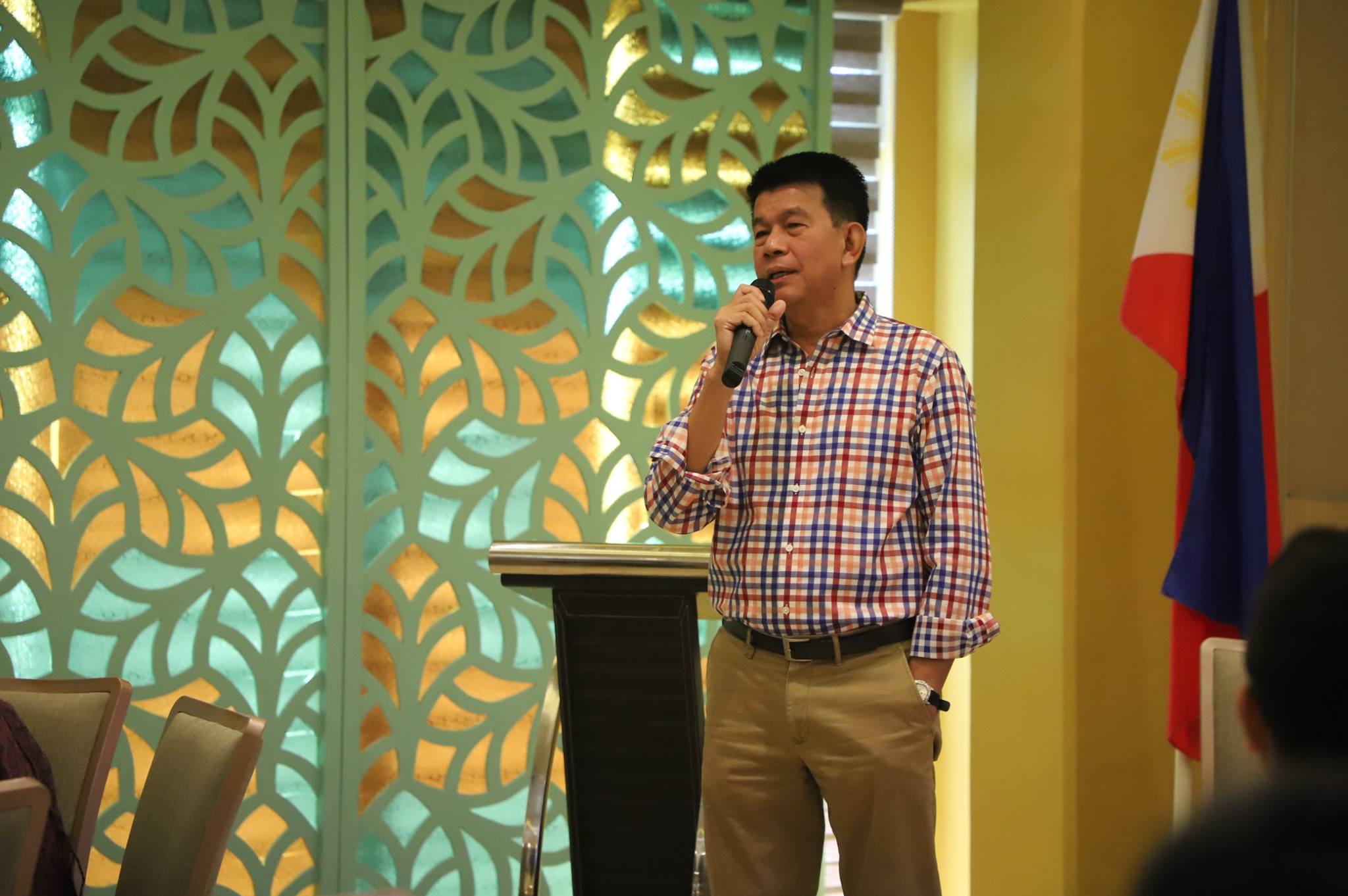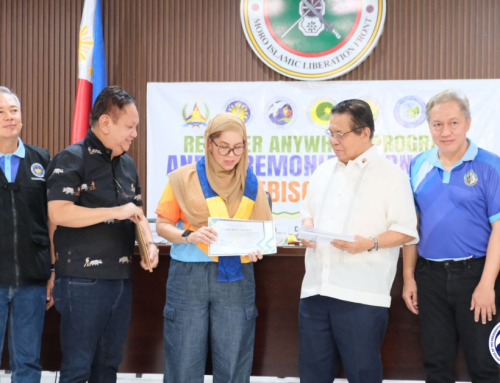CAGAYAN DE ORO, October 10, 2018 – The Office of the Presidential Adviser on the Peace Process (OPAPP) has urged members of civil society to go over the Bangsamoro Organic Law (BOL) in its entirety as this will be the key in developing a better appreciation of the landmark measure.
“Please read it. This is the best way to understand it,” OPAPP Undersecretary and GPH Implementing Panel Chair Nabil Tan said in his remarks at the “Civil Society Organization’s Assessment and Planning Workshop” held last October 8 at the New Dawn Plus Hotel in this city.
The two-day forum was organized by the Initiatives for Peace and Development in Mindanao (IPDM) and supported by the United Nations Development Fund (UNDP).
Tan said there are still apprehensions regarding the law because many still have not seen its actual content.
“Get hold of the law. So there will be no misconceptions about it,” he said as he highlighted key provisions of the BOL covering the areas of governance, employment, resource-sharing, revenue collections, and peace and security.
Block Grant and Special Development Fund
Tan said among the major economic features of the BOL is the Block Grant, a 5 percent share of the Bangsamoro Autonomous Region in Muslim Mindanao (BARMM) from the total national revenue collections of the Bureau of Internal Revenue (BIR).
The fund, he said, will be automatically appropriated to the Bangsamoro government and will be reflected in the General Appropriations Act (GAA).
“This will address underdevelopment in the region,” Tan said, emphasizing that under the new setup, the BARMM leadership “will no longer need to beg for funds from Congress” as what had happened during the past administrations.
Tan said aside from the Block Grant, the region will also be given a Special Development Fund that will enable conflict-affected communities in the area to catch up with their more progressive counterparts and partake of the benefits of economic growth.
ARMM to BARMM
On the concern of what will happen to the Autonomous Region in Muslim Mindanao (ARMM), Tan said once the BOL is ratified by residents during the plebiscite in January 21, 2019, the ARMM will be replaced by the Bangsamoro Autonomous Region in Muslim Mindanao or BARMM.
“If they vote for yes, the ARMM will be abolished and become the BARMM,” he said, explaining the yes vote will have to be made by the region as whole. “But if they vote no, they will remain in the ARMM.”
The ARMM is composed of the provinces of Lanao del Sur, Maguindanao, Basilan, Sulu, and Tawi-Tawi.
With regards to the six municipalities in Lanao del Norte — Baloi, Munai, Nunungan, Pantar, Tagaloan, and Tangkal — which voted for their inclusion during the 2001 ARMM plebiscite, Tan said a majority “yes” vote to be cast by residents across the province is needed for these municipalities to become part of the BARMM.
A social contract
On the status of ARMM personnel, Tan gave assurance that current employees who will not be absorbed under the new government will be given the chance to re-apply.
Tan, however, stressed that these workers must be able to meet certain qualification standards for them to be considered for the position.
“We must remember that the BOL is not only a legal document but also a social contract as well,” he said.
Revenue-sharing
On the issue of revenue sharing between the BARMM and national government for taxes collected in the region, Tan said it is going to be “70-30” arrangement in favor of the former.
But he said for the next 10 years, the BARMM government will receive 100 percent of the region’s overall revenue collections.
In terms of revenue sharing from taxes collected on natural resources such as fossil fuels, it will be a “50-50” arrangement for both parties, he said.
Concerns on police, armed forces and Shariah courts
Contrary to some misconceptions, the BARMM government will not establish its own police and armed forces, Tan clarified.
“The defense of the state is lodged with the national government. The 1987 Philippine Constitution says that there will only be one national police and one armed forces,” he said.
With regards to fears that the Shariah Law will be strictly implemented across the region, Tan said the law will only apply to those who belong to the Muslim faith.
“This law (Shariah) only holds for offenses committed by members of the (Muslim) community,” he said. “Regular courts will continue to function.”
Managing expectations
For his part, Haron Meling, a commissioner of the Bangsamoro Transition Commission, said the people will have to manage their expectations because the BOL will not provide an all-encompassing solution to all the challenges confronting the region.
“It (BOL) will not be a panacea even if implemented in the fullest. The (BARMM) government is not a magic wand,” Meling said.
He said over the years, the MILF leadership has focused on one primary goal and that is “to address the Moro problem.”
The passage of the BOL, Meling said, was therefore a major victory for the Bangsamoro people because it was a realization of their decades-long struggle to be recognized as a people.
In order for the region to achieve its full potential, he said people must unite and translate their aspirations into action.
“We have to plan and work hard to realize these dreams,” Meling said.
The “Columbian Experience”
At the same forum, Dr. Chetan Kumar, Senior Advisor on Peacebuilding to the UN and resident coordinator to UNDP-Philippines, said the “Colombian experience” offers a lot of insights on how peace agreements can be implemented and succeed.
“Many did not understand why the law was important to them,” he said.
“All the work you are doing should therefore inspire, make people better understand (the law),” he added. ###












